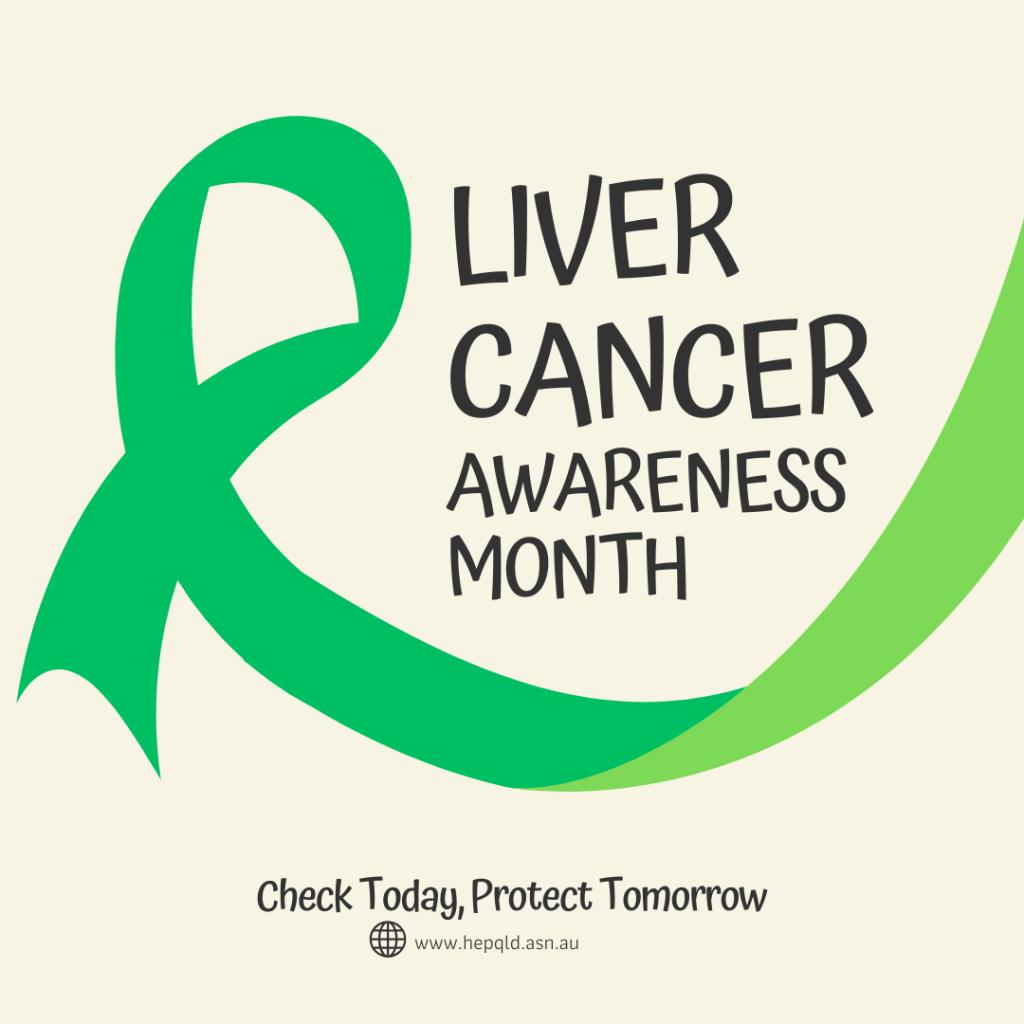Check today, protect tomorrow. Liver Cancer Awareness Month

October marks Liver Cancer Awareness Month, a time to reflect on the importance of liver health and the rising cases of liver cancer across Australia.
Every day, nine Australians are diagnosed with liver cancer and these numbers continue to grow. But there is hope: early detection and treatment can significantly increase your chances of survival.
Why liver cancer develops
The leading cause of liver cancer is undiagnosed and untreated chronic hepatitis B and hepatitis C. These infections can damage the liver slowly and silently for many years, often without symptoms, before liver cancer develops.
Other risks, such as metabolic-associated fatty liver disease (MAFLD), obesity, type 2 diabetes, and heavy alcohol use, are also contributing to the rising rates of liver cancer.
The good news is that up to 70% of liver cancer cases are preventable and early detection is key. Regular liver checks, testing, and simple lifestyle changes can make a life-saving difference.
Hepatitis B and liver cancer risk
- Vaccination is the best protection. All children should be vaccinated against hepatitis B, and adults at higher risk should also be protected.
- If you’re living with hepatitis B, don’t skip check-ups. Even if you feel well, your liver could still be at risk. Seeing your doctor every six months for monitoring helps catch problems early and can prevent liver cancer.
Hepatitis C: treatment and cure
- Today, hepatitis C can be cured with simple, highly effective treatments.
- If treated early, and your liver was healthy before treatment, your risk of developing liver cancer falls back to that of someone who has never had hepatitis C.
- If you already had advanced liver disease or cirrhosis before treatment, you’ll still need regular liver cancer screening. Early checks improve your chances of survival.
The rising concern of fatty liver disease (MAFLD)
Metabolic-associated fatty liver disease is strongly linked to obesity, type 2 diabetes, and lifestyle factors. Over time, it can cause liver scarring and increase the risk of liver cancer.
You can lower your risk by:
- Eating a balanced diet rich in fruits, vegetables, and lean proteins.
- Exercising regularly to maintain a healthy weight.
- Limiting alcohol to reduce liver stress.
What does a regular liver check look like?
When you visit your GP they may ask you some lifestyle questions including risks factors for hepatitis B & C, questions about your diet, exercise routine and consumption of alcohol. They may examine your abdomen, and you may be sent for a blood test.
Take action today
This Liver Cancer Awareness Month, remember that early detection is your best chance of survival. Protect your liver health by taking these steps:
✅ Get tested for hepatitis B and C. It’s simple and effective.
✅ Get vaccinated for hepatitis B if you’re not already protected. Vaccines are free for some higher-risk groups.
✅ See your doctor regularly for liver health checks, especially if you’re living with hepatitis or have other risk factors.
✅ Adopt healthy habits: eat well, exercise, and drink less alcohol.

More information
We’re here to help. For hepatitis testing, vaccination, and treatment information, call the Hepatitis Queensland Infoline on 1800 437 222. You can also find cancer support services at cancerqld.org.au
Together, we can stop liver cancer before it starts and give every Queenslander the best chance at survival.
